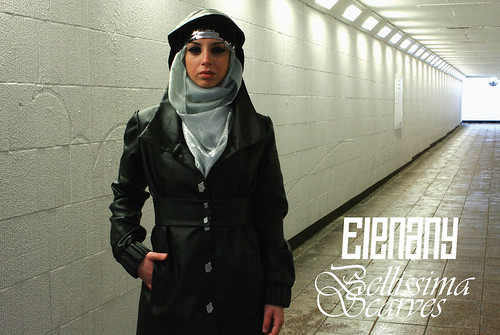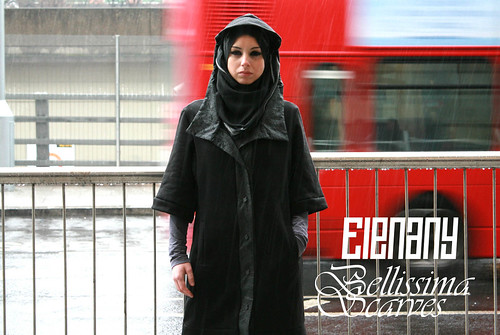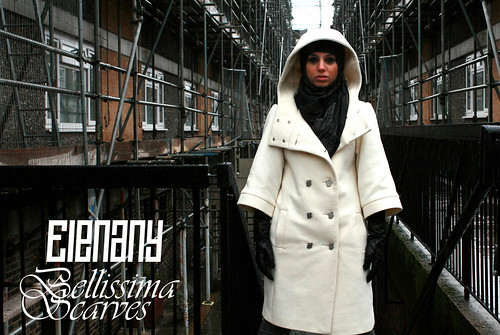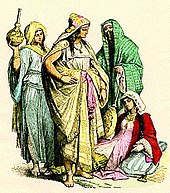 Another View/Other Colors |
Total Pageviews
Links
Popular Posts
-
If you're new here, you may want to subscribe to my RSS feed. Thanks for visiting! Are you in looking for personal in...
-
Shah Abdul Latif Bhitai (sometimes written Bhittai or Bhittaii) was a devout Muslim Sufi, but his spirituality was broad an...
-
Lenders make credit available to borrowers in several different forms, from credit cards to lines of credit to long-term loans. What they ...
-
Here at CLF, online loan applications are submitted every day from applicants who need to borrow money for...
-
by The Grasp Shake Signal Article by Ayra Haramaki A mesothelioma law firm is surely a single when the associates stand for the folks and...
-
In a bind and in between paydays? Have a medical or other emergency? Planning a wedding, honeymoon or vacation? If YOU don’t have enoug...
-
Nowadays, dah ramai yg sukakan vintage fashions, kalau sapa yg pandai gayakan mesti nampak comel and lain sikit dari orang lain. Hehe,...
-
Navy Personnel are at Risk for Developing Mesothelioma Veterans from all branches of the armed forces including the Army, Navy, Air Force ...
-
What to Do When You Need Fast Cash Installment loans can help you in an emergency – and they can be paid off over time. (Photo: picasaweb.g...
Blog Archive
Sunday, March 6, 2011
Sensuous Silk
Bold Stripes
 Another View/Other Colors |
Glamorous Silk Scarves

Another View/Other Colors |
March Giveaway

For the first giveaway this month, Hijab Style is giving you the chance to win a hijab and prayer mat of your choice from Muslimbase.
To enter, all you have to do is visit the Muslimbase website and answer the following question:
"What would you like to change about the Muslimbase website?"
E-mail in your answer along with you full name and city, with 'March Giveaway' in the subject line to hijabstyle@hotmail.co.uk. Please note that if any of this information is missing, you will not be entered into the competition.
Extra Entries:
You can get an extra entry into the giveaway when you follow Hijab Style on Twitter! Simply send in a separate e-mail with your full name and link to your Twitter profile. The deadline for entries is midnight GMT on Friday 11th March 2011.
The winner will be chosen at random and contacted via e-mail. Don't forget to tell all your friends and family too - the giveaway is open to entrants from all countries!
Bonus February Giveaway
To enter, all you have to do is visit the Jasmine Pearls Etsy Store, and send an email in with the name of your favourite item, along with your full name and city with 'Bonus February Giveaway' in the subject line to hijabstyle@hotmail.co.uk. Please note that if any of this information is missing, you will not be entered into the competition.
Extra Entries:
You can get an extra entry into the giveaway when you follow Hijab Style on Twitter! Simply send in a separate e-mail with your full name and link to your Twitter profile. The deadline for entries is midnight GMT on Tuesday 22nd February 2011.
The winner will be chosen at random and contacted via e-mail. Don't forget to tell all your friends and family too - the giveaway is open to entrants from all countries!
Hijab Style Exclusive: Elenany Photoshoot




And just a few more photos from the upcoming A/W 2011 collection...



High Street Hijab Finds: Dorothy Perkins
Coral floral print scarf £10, Blue floral print scarf £10, Coral paint splash scarf £10, Mustard large floral scarf £12, all Dorothy Perkins.
Pretty Prints
Clover club flared dress £57, French Connection; Navy rib pointelle cardigan £26, Dorothy Perkins; Deauville stripe scarf £20, Great Plains; Trousers £19.99, H&M; Cassie leather cross body bag £45, Oasis; Navy chain detail pumps £20, Dorothy Perkins.
Muslim

A Muslim (/ˈmʊslɨm/) is an adherent of Islam, an Abrahamic, monotheistic religion based on the Qur'an, which Muslims consider as the verbatim word of God as revealed to prophet Muhammad. "Muslim" is the Arabic term for "one who submits to God".
Muslims believe that God is one and incomparable.[1] Muslims also believe that Islam is the complete and universal version of a primordial faith that was revealed at many times and places before, including through the prophets Abraham, Moses and Jesus.[2] Muslims maintain that previous messages and revelations have been partially changed or corrupted over time,[3] but consider the Qur'an to be both unaltered and the final revelation from God.
Most Muslims accept as a Muslim anyone who has publicly pronounced the Shahadah (declaration of faith) which states, "There is no god but God, and Muhammad is the messenger of God." Their religious practices include daily prayers (salat), fasting during Ramadan (sawm), almsgiving (zakat), and the pilgrimage to Mecca (hajj) at least once in a lifetime.[4] [5] Other important concepts include jihad, Islamic law and jurisprudence.
Currently, the most up-to-date reports from an American think tank and PBS have estimated 1.2 to 1.57 billion Muslims populate the world, or about 20% of an estimated 2009 world population of 6.8 billion,[6] with 60% in Asia and 20% of Muslims living in the Middle East and North Africa.[7][8][9][10]
Etymology
A muslim (Arabic: مسلم; /ˈmʊslɨm/ MOOS-lim or English pronunciation: /ˈmʌzlɨm/ MUZ-lim) is the participle of the same verb of which islām is the infinitive.[11] A female adherent is a muslima (Arabic: مسلمة). The plural form in Arabic is muslimūn, and its feminine equivalent is muslimāt.
Muʾmin (Arabic: مؤمن) is another Islamic term frequently referenced in the Qur'an, meaning "believer", and denoting a person that has complete submission to the will of God.
The Arabic form muslimun is the stem IV participle[12] of the triliteral S-L-M "to be whole, intact". A literal translation would be "one who wants or seeks wholeness", where "wholeness" translates islāmun.[citation needed] In a religious sense, Al-Islām translates to "faith, piety", and Muslim to "one who has (religious) faith or piety".[citation needed]
Other words for Muslim
The ordinary word in English is "Muslim", pronounced /ˈmʊslɪm/ or /ˈmʌzləm/. The word is pronounced [ˈmʊslɪm] in Arabic. It is sometimes transliterated as "Moslem", which an older spelling that is now considered offensive.[13] “Submitter” is the English equivalent of the Arabic word “Muslim”.[14]
Until at least the mid-1960s, many English-language writers used the term Mohammedans or Mahometans.[15] Although such terms were not necessarily intended to be pejorative, Muslims argue that the terms are offensive because they allegedly imply that Muslims worship Muhammad rather than God.
Variant forms of this word are still used by many Indo-European and Turkic languages. These words are similar to the French, Spanish, Portuguese, Italian, Russian, Turkish, Bosnian, Persian, Kurdish, and Hindi words for "Muslim".
In spite of that, the Polish word for Muslim almost certainly does come directly from the Turkish. While it appears as if it came directly from the Arabic, in "Muzułmanin", the "ł" sound is close to either the English "w", or to the "l" in Allah, when pronounced by the Turkic peoples.
In the Qur'an
Used to describe earlier prophets
| | This section needs additional citations for verification. Please help improve this article by adding reliable references. Unsourced material may be challenged and removed. |
The Qur'an describes many prophets and messengers as well as their respective followers as Muslim: Adam, Noah, Abraham, Jacob, Moses and Jesus and his apostles are all confirmed as being Muslim by the Qur'an. The Qur'an states that these men were Muslims because they submitted to God, preached His message and upheld His values, which included praying, charity, fasting and pilgrimage. Thus, in Surah 3:52 of the Qur'an, Jesus’ disciples tell Jesus, "We believe in God; and you be our witness that we are Muslims (wa-shahad be anna muslimūn)." In Muslim belief, before the Qur'an, God had given the Torah to Moses, the Psalms to David and the Gospel to Jesus, who are all considered important Muslim prophets.
Muslim and mu'min
One of the verses in the Qur'an makes a distinction between a mu'min, a believer, and a Muslim:- The Arabs of the desert say, "We believe." (tu/minu) Say thou: Ye believe not; but rather say, "We profess Islam;" (aslamna) for the faith (al-imanu) hath not yet found its way into your hearts. But if ye obey [God] and His Apostle, he will not allow you to lose any of your actions: for [God] is Indulgent, Merciful ('The Koran 49:14, Rodwell).
passage cited above, early Muslims distinguished between the Muslim, who has "submitted" and does the bare minimum required to be considered a part of the Muslim community, and the mu'min, the believer, who has given himself or herself to the faith heart and soul. Ernst writes:
- "The Arabic term Islam itself was of relatively minor importance in classical theologies based on the Qur'an. If one looks at the works of theologians such as the famous al-Ghazali (d. 1111), the key term of religious identity is not Islam but iman (faith), and the one who possesses it is the mu'min (believer). Faith is one of the major topics of the Qur'an; it is mentioned hundreds of times in the sacred text. In comparison, Islam is a less common term of secondary importance; it only occurs eight times in the Qur'an. Since, however, the term Islam had a derivative meaning relating to the community of those who have submitted to God, it has taken on a new political significance, especially in recent history."[16]
Demographics
Sources of influence
Islamic law is the product of Qur'anic guidelines, as understood by Islamic jurisprudence (fiqh), as well as of the interpretations derived from the traditions of Prophet Muhammad (hadith), that were agreed upon by majority of Muslim scholars as authentic beyond doubt based on the Science of Hadith[2][7] These interpretations and their application were shaped by the historical context of the Muslim world at the time they were written.[2] Many of the earliest writings were from a time of tribal warfare which could have been inappropriate for the 21st Century.
The Marxist writer, Valentine M. Moghadam argues that the position of women are mostly influenced by the extent of urbanization, industrialization, proletarization and political ploys of the state managers rather than culture or intrinsic properties of Islam; Islam, per Moghadam, is neither more nor less patriarchal than other world religions especially Hinduism, Christianity and Judaism.[8][9]

"The dowry, previously regarded as a bride-price paid to the father, became a nuptial gift retained by the wife as part of her personal property."[10][11]
Under Islamic law, marriage was no longer viewed as a "status" but rather as a "contract", in which the woman's consent was imperative.[10][11][12] "Women were given inheritance rights in a patriarchal society that had previously restricted inheritance to male relatives."[10] Annemarie Schimmel states that "compared to the pre-Islamic position of women, Islamic legislation meant an enormous progress; the woman has the right, at least according to the letter of the law, to administer the wealth she has brought into the family or has earned by her own work."[13]
William Montgomery Watt states that Muhammad, in the historical context of his time, can be seen as a figure who promoted women’s rights and improved things considerably. Watt explains: "At the time Islam began, the conditions of women were terrible - they had no right to own property, were supposed to be the property of the man, and if the man died everything went to his sons." Muhammad, however, by "instituting rights of property ownership, inheritance, education and divorce, gave women certain basic safeguards."[14]
During his life, Muhammad married eleven women depending upon the differing accounts of who were his wives. His last wife, Aisha was six or seven years old when she was married, though at the time women married at an early age. Muhammad saw in her a great woman of the future who was best suited to perform the duties of a wife and of a teacher, whose words and deeds had to be preserved for the guidance of mankind.[15][16][17][18] Aisha was nine years old when Muhammad consummated the marriage.[19][20][21][22][23][24][25] Aisha's age at the time of her marriage consummation has been a subject of criticism and controversy. Many Shiite scholars[who?] dispute Aisha was six or seven when Muhammad married her. They contend that she was between thirteen and sixteen when he married her. Furthermore, they believe Muhammad's most favored wife was his first wife, Khadija. He married her while he was in Mecca, but she died before he migrated to Medina. Muhammad called the year of Khadija's death the "Year of Sorrow." When Muhammad settled in Medina and married several wives, he would often mention Khadija and her contributions to Islam. Some of Muhammad's wives would be uncomfortable when he mentioned Khadija. The Prophet was once disappointed with Aisha because she complained when he mentioned Khadija.
Labels
- "Beloved" Earrings (2)
- "Benchmarks in England" (1)
- "Peace" Earrings (1)
- 1060-1100 Culinary Schools California GhoniyMughniy (1)
- 1060-1100 GhoniyMughniy (1)
- 1060-1100 GhoniyMughniy San Deigo DUI Lawyers (1)
- 2011 Latest Hijab (1)
- 96 by: ghoniymughniy 1060-1100 (1)
- Accounting Degrees GhoniyMughniy (1060-1100) (1)
- Aceh (1)
- American (6)
- American Marketplace (1)
- Asbestos (1)
- Asbestos Cancer and Mesothelioma (1)
- Asbestos Mesothelioma (1)
- Awliya Allah In Islam Sufisme (1)
- Bank loans for professional and technical education courses (1)
- Bank of England (1)
- benchmark (3)
- Benchmark Data View (1)
- Benchmark Geocoin (1)
- Benchmark in CY09 (1)
- Benchmark Lending (2)
- Bikahthohaunaihin (2)
- BIRHATIIHIN (1)
- Black and White "Keffiyeh" Arafat Wrap Hijab (1)
- Bold Stripes (1)
- Bonus February Giveaway (1)
- busana muslim jilbab islamic fashion (1)
- Canadian (3)
- Carissa Wrap Hijab (1)
- Citadel Complex Best of IgoUgo Attraction "The Citadel" (1)
- Conference Calling Companies 1060-1100: Basmala786 (1)
- dan Istrinya yang Yahudi (1)
- Debt Consolidators-bikahthohaunaihin (2)
- DWI Fort Worth 1060-1100 GhoniyMughniy (1)
- England (1)
- Famous Paintings (1)
- GAZA: Has Hamas unofficially imposed Islamic dress code on students? (1)
- Ghoniy-Mughniy: Endowment Selling 1060-1100 (1)
- Ghoniy-Mughniy: Pop Up Displyai Booths 1060-1100 (1)
- GhoniyMughniy 1060-1100: raid data recovery services (1)
- GhoniyMughniy: break down covers1060-1100 (1)
- GHONIYMUGHNIY: DENVER DATA RECOVERY 1060-1100 (1)
- GUS DUR (9)
- Hand engraved Sterling Silver and Quartz Crystal "Allah" Earrings (1)
- Hasan Tiro (1)
- High Paying Keyword (HPK) Google Adsense 2010-2011 (1)
- High Paying Keyword 2011 Insurance $10 (1)
- High Street Hijab Finds: Dorothy Perkins (1)
- Hijab Style Exclusive: Elenany Photoshoot (1)
- hikmah (2)
- Indian Banking (1)
- Inflation rate (1)
- Installment Loans (8)
- Iranian Women between a rock and a hard place (1)
- Islam (1)
- Islamic Fashion Registry outfi (2)
- Jelaluddin Rumi (1)
- Jessilah Wrap Hijab (1)
- Kapan Lebaran 1432 H? (1)
- Kariirin (1)
- Katherine (1)
- Kemenag Masih Tunggu Hasil Sidang Isbat Penentuan 1 Syawal 1432 H Dipastikan Berbeda (1)
- Kemungkinan hari raya jatuh pada hari rabu? (1)
- LANGGAR MIRING (1)
- langgar miring rahmatullah (1)
- Latest Hijab (1)
- Latest Hijab trends in Pakistan (1)
- Lebaran Versi Pemerintah Diprediksi Rabu (1)
- Loans (12)
- Love Films GhoniyMughniy1060-1100 (1)
- Lovely White Silk (1)
- Managed Hosting Services: 1060-1100 GhoniyMughniy (1)
- March Giveaway (1)
- Maulid Nabi (1)
- Mengenal Artis Berdarah Yahudi di Indonesia (1)
- Mesothelioma (4)
- Mesothelioma - lawyer (2)
- Mesothelioma attorney (1)
- Mesothelioma compensation (2)
- Mesothelioma Navy (3)
- Mesothelioma Therapy (1)
- Modest and Elegant Islamic Dress (1)
- Muslim (1)
- My Silk Garden (1)
- Nice Design and Motif of Muslim Dress (1)
- Normative Anglo Islamic Dress (1)
- Northern Tools 1060-1100: GhoniyMughniy (1)
- Online Masters Degree Programs GhoniyMughniy (1060-1100) (1)
- Origin of Milad an-Nabi (‘alayhis salam) (1)
- Osama bin Laden (12)
- OvernightPrints COUPON CODES 2011 GhoniyMughniy 1060-1100 (1)
- pembuka (1)
- Pemerintah Gelar Sidang Itsbat Sore Ini Irwan Nugroho - detikRamadan (1)
- Penentuan Hilal Tanggal Lebaran 1 Syawal 1432H 2011 oleh Menteri Agama (1)
- PENGUMUMAN LEBARAN 2011 PEMERINTAH Ditetapkan Berdasarkan SIdang Isbat Penetapan 1 Syawal 1432H (1)
- Pilih 30 atau 31 (1)
- Prediksi NU dan Ahli Astronomi Lebaran Beda (1)
- Pretty Prints (1)
- Rafly Publishes a ‘Benchmark’ Wishky (1)
- Ramadan muslim fashion in joy (1)
- Remortgage GhoniyMughniy 1060-1100 (1)
- Scottrade Account Application GhoniyMughniy 1060-1100 (1)
- Sejarah Yahudi di Indonesia (1)
- Sensuous Silk (1)
- Shah Abdul Latif Bhitai (1)
- Sources of influence (1)
- Sprint Plans 1060-1100 GhoniyMughniy Sprint Calling Plans (1)
- Sterling Silver "Prayer of Moses" Earrings (1)
- Sufi (2)
- Sufi Muslim Council (1)
- Sufisme (1)
- Sufisme Islam sebagai rahmatullah bagi alam (1)
- Teachings of Sayyudina Shaykh Abd Al-Qadir Jilani (radiAllahu anhu) (1)
- Tentukan Idul Fitri (1)
- The Abir Wrap Hijab (1)
- THE CONCEPT OF JIHAD ("STRUGGLE') IN ISLAM (1)
- The Salma Scarf (1)
- The Shakira Scarf (1)
- The Turkish Hijab (1)
- TICKETSNOW: WORST TICKET SITE EVER GHONIY MUGHNIY (1060-1100) (1)
- UK (1)
- Up2date Designs (1)
- Vintage Fashions (1)
- Wikala of al-Ghouri Best of IgoUgo Attraction "Sufi Music and dancing" (1)
- World of Islam (1)
- Wrapped Muslim Fashion in Modesty (2)
- Yahudi (2)












